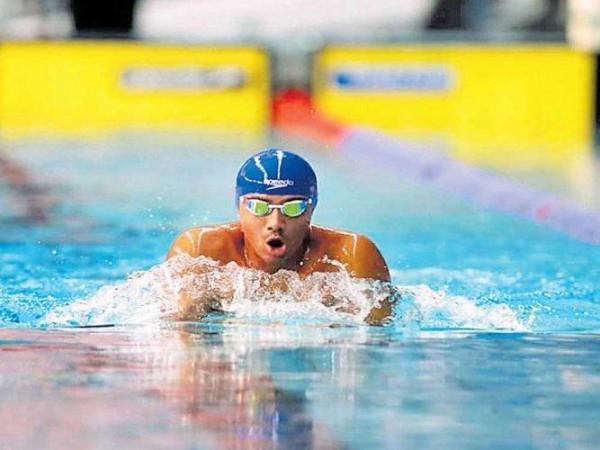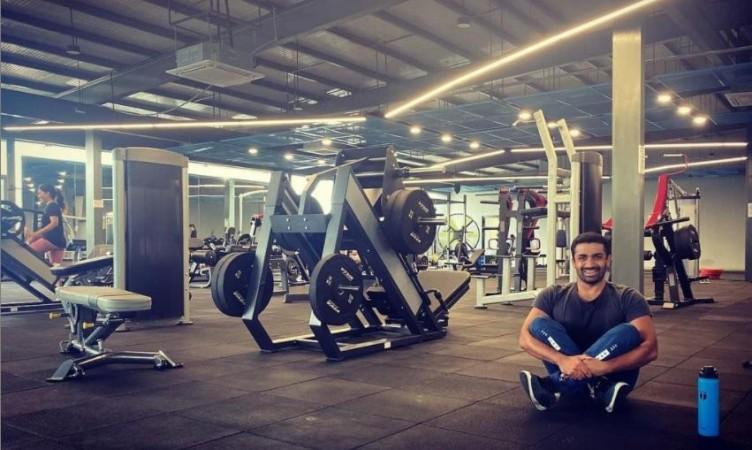"I was practically paralyzed till the age of five. I couldn't move from one place to another. Once I was introduced to swimming, I realized I could move on my own. It gave me a sense of freedom and independence."
These are the words that define 26-year-old Niranjan Mukundan's Para-swimmer journey so far. Born with spinal bifida and clubbed feet, his family had never thought he would do anything on his own, let alone bring laurels to India in the field of sports.
What began as a simple sense of freedom during childhood, took Niranjan places, as far as the title of Junior World Champion (2015) and later, Asian Para Games (2018) championship.
But the announcement of his participation at the upcoming Tokyo Paralympics through a bipartite selection has come as a relief to Niranjan who underwent a great personal loss in the last few months yet kept training with a little hope in his heart.

"Covid-19 took a mental toll on my spirit. I lost my grandmother a few months back. I was also tested positive and came out of it. My parents were busy with work mostly and I grew up mostly around my grandmom," he says adding, "She was the one who took care of me, took me for my training, supported me through highs and lows. She was an inspiration, a motivating factor in my life who kept that zeal in me alive. I'd like to dedicate this championship to her. I wouldn't have come so far if it wasn't for her."
Talking about training during the pandemic with restrictions imposed on travelling and movement, closure of pools, Niranjan says that he had to give up his coaching in Thailand with Spanish coach Miguel Lopez Alvarado and be in Bengaluru for the most part of the pandemic and train with his Indian coach John Christopher.
"We had this hope in our heart that there could be a chance for us at the Tokyo Paralympics, so we continued training, as and when we could, with limited resources possible," he clarifies.

In a country like India where most sports apart from cricket, take a hit for not being as popular, drawing attention to para games and receiving a sponsorship is a challenge. But Niranjan feels that we have come a long way and there has been a noticeable shift in the way para games are perceived.
"If we compare the state of para-sports in India to what it was 10-12 years ago, there has been a rise in terms of public awareness and government recognition. Indian para swimmers have made a name for themselves in several world championships in the recent past," he says.
"Any sport isn't an easy sport. Any sport isn't a cheap sport. My training in Thailand cost nearly 20-30 lakhs a year, but once I got recognized and was offered a scholarship, I was able to manage my expenses there. I have been supported by an NGO named Go Sports foundation that has been supporting Paralympic athletes as well as aged athletes since 2008," laments Niranjan who declares himself as a cricket fanatic yet feels that sponsorship is still an issue in our country, especially if compared to cricket, which is huge. "When it comes to para-sports, the sponsorship window is further narrowed down," he adds.
While participating and succeeding in a sport is a feat in itself, very few Indians turn to sports management as an academic option. Niranjan is one of them and his reasons for studying sports management are very clear.
"Sports has given me everything. I want to inspire the next generation of athletes, not just as a swimmer but also by giving back to the sport. My long-term goal is to start a sports foundation, an academy that focuses on disability, education and sports. I come from a society that needs a lot of inclusivity so that is another vertical I'd like to keep in mind," he concludes.
India at the Paralympic Games
India debuted at the Paralympic Games in the year 1968 in Tel Aviv, Israel with 10 athletes including eight men and two women. India, however, returned home without any medal from the Games but it was the first real experience for India's para-athletes at the big stage. It was in the year 1972 that Indian bagged its first-ever Paralympic medal as Para-swimmer Murlikant Petkar set a world record time of 37.331 seconds to bag a gold medal in 50m freestyle swimming.















